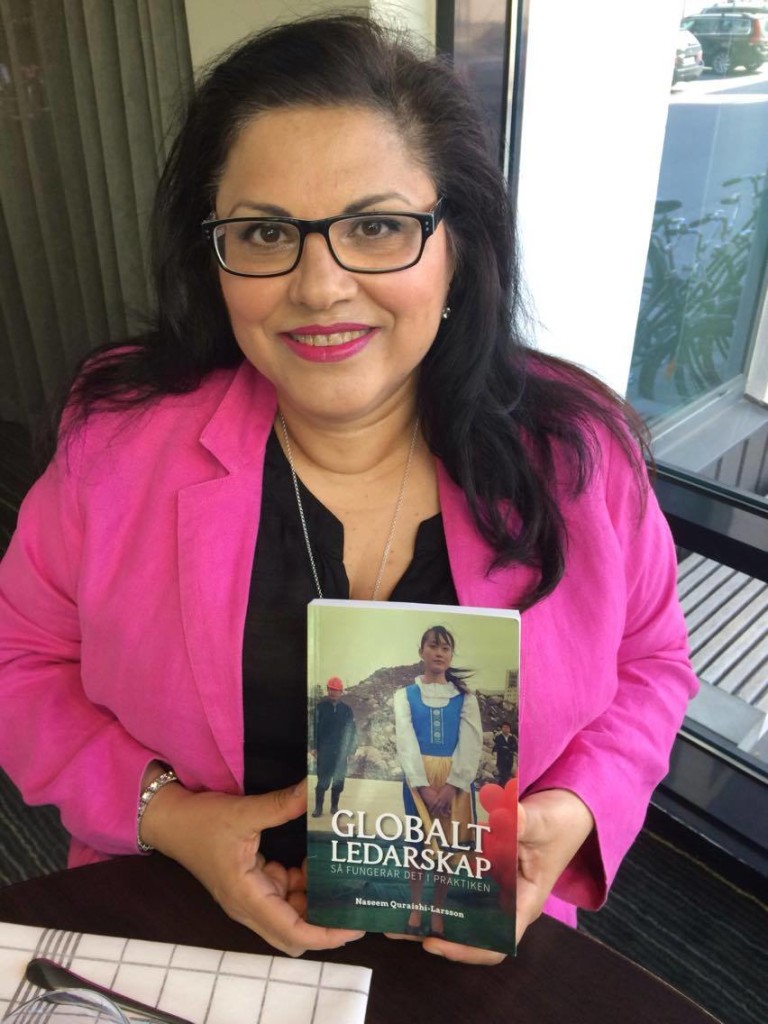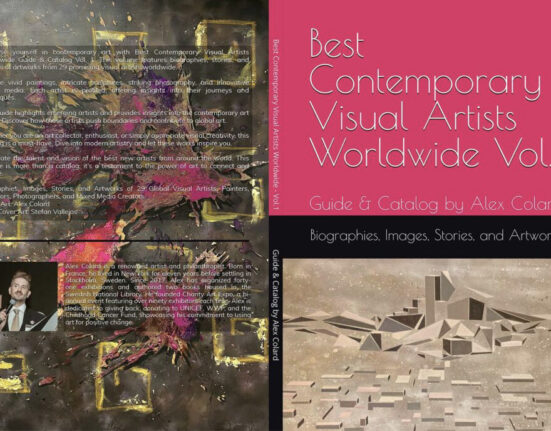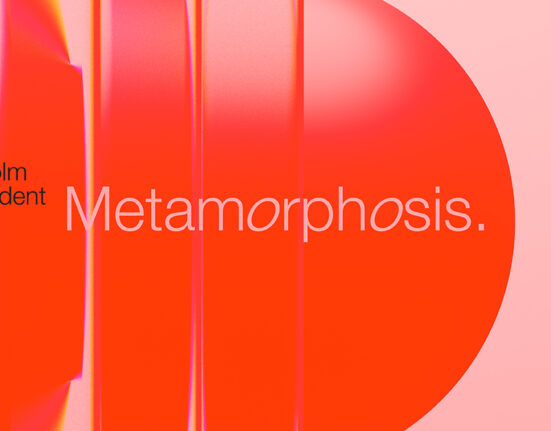We are living in a world where women want to be more than just storytellers. Women want to inspire more than they did before. We talked to Naseem Quraishi-Larsson, who is a CEO and film producer for QL Filmdevelopment.
She is an author, public speaker, and film maker with a strategy and change consultant background. She develops and produces film ideas and scripts for organizations. She develops drama, educational films and promotion films for entrepreneurs. Naseem worked many years in different fields as a leader and strategy and change consultant, developing herself constantly until she put all her skills and experience into film-making.
Can you tell about the book you have written?
Globalt Ledarskap speaks about the chaos that sometimes follows the global movement and gives advice on how to survive and prosper in a chaotic environment. I also wrote a novel that I have been adapting to film, but is not yet published.
What was your first movie watching experience as a child in a theatre, and how did it affect you?
I remember the Jungle Book which fascinated me because of the colourful animations, and maybe also as it portrayed a little Indian boy, and that was unusual for me to see as a half-Indian, half-Swedish girl growing up in Sweden. In those days there were very few immigrants in Sweden. I have also lived in other countries (Middle East and England) and have friends all over the world and I do consider myself multicultural today.
What are your top films, and why?
Blood Diamond – because it describes a society in change and the identity problems that follow the changing political landscape in Africa. It also describes the challenges in how to influence difficult situations which make a lot of people suffer, and brings up moral and ethical issues in reporting and trying to help. As my father lived in Southern Africa for many years I became interested in the political happenings there, and this film has a very strong story.
Fight club – Very clever plot, psychological issues and how to cope with modern society and gender identity in a world some people feel disassociated with.
My Africa – It’s a very beautiful movie that shows the beauty of Africa and as I have stayed in Africa on several occasions I was moved by it. I also have relatives in Africa. The film is also about a person from Scandinavia discovering another continent and a society based on colonization, and trying to adapt to it.
One flew over the Cuckoo’s nest – At a young age it showed me how organizations and authorities can take control over someone’s life and how people’s views on what is normal behaviour or mental illness can have very very harsh consequences. This made me interested in the mental care sector and I even worked there during my studies.
What was your first movie making experience, and how did it change your life?
My first film was made together with my daughter. I wrote the script together with her and it was about relationships between teenage girls and how conflict could turn to bullying. My vision for the film was so strong that I attracted a lot of professional people that wanted to work with me. A fun family project turned into a professional one with a mission. The result was that the film became a best seller in Swedish schools. The movie is called Friend or enemy (Vän eller fiende).
What’s been the largest project you’ve taken on so far?
As a European Program manager, part of a Global program for a worldwide efficiency programme for IT operations in IBM. It was a huge challenge as things worked very differently in different countries and in fact within the countries. Leading a European project with all countries on the same time schedule was mission impossible.
What are you currently working on?
Making a promotion film for a leadership and team development consultant. I’m also preparing for the next mentor program where I actually will teach other business owners effective digital marketing through storytelling and film.
How is your career influencing Sweden?
I am getting to influence the next generation of teenagers, teaching them about empathy and increasing their emotional intelligence, knowledge and ability to understand the consequences of their own actions and to show them the mechanisms of letting people in a social context. I have also been mentoring university students from Uppsala University. As a public speaker I teach people about globalization and how to get the most out of working in a diverse environment. In my films and in my writing my values are always present. I am for diversity and gender equality and my films display people with different origins and show women in different positions and not only in subordinate roles. I am also a member of women in film and television and think it is important with representation in the films we see.
Highlight your top achievements/ accomplishments?
Performing Organisation design including designing roles and responsibilities and successful implementation of the new organization in IBM Nordics, which served as a base for other countries. I also developed a process implementation method that was highly appreciated and it was really well adopted. These successful projects led me to be part of global governance teams in IBM and to lead process leaders all over Europe. These skills have also come in handy when producing films successfully. Film-making is a complex business and needs a set of many skills to be effective and to reach its target group.
Can you make a comparison between the quality of Swedish movies and other countries? Is it hard to find investors in Sweden?
Swedish films have only a fraction of a budget of a Hollywood film or from countries like England or Germany who have larger target groups. We seldom make independent films, but are depending on government funding, and most films don’t make money. In India and America there is more of a tradition of also making low budget, self funded movies. The budget restrictions and dependency on government funding affects the stories that we in Sweden are able to create and the freedom of deciding over the production. They tend to be social realistic though there is a new genre with for example simply made zombie films that are not produced with government funding. Some films based on books like “The girl with the dragon tattoo” have been successful and remakes have been produced in Hollywood. Some Swedish films with higher budget have received funding for Germany. Like “Simon och ekarna). In general very few Swedish films get made every year because of limited government funds.
What determined you to make a movie about bullying? How did the students react to it?
Social interaction between people has always fascinated me and I have worked with conflict solving in the workplace. My daughter that I made the film with and also acts in it has the same fascination and wants to be a researcher in the field of psychology. Bullying is still an issue in many schools despite programs. Hopefully my film will help the students learn something about themselves and as adults become better at handling conflicts. Many teachers I have met really like the film, and I have also been told that it resembles the conflicts in working life. Bullying can be acted out by many people and groups, without them being aware of it. My message is however that with awareness comes the empathy and the desire to heal the relationship. My film also has a discussion material and is a trigger to solve issues that may be there.
What are your goals?
One is to rekindle my film project based on my novel. Another is that I would like to reach out to an international market with my mentor program for businesses that want to build their brand and learn how to communicate with film and how to tell effective stories that help them to implement products and services in the market place.
Are you interested in the new crises situation? What would the best solution be in your opinion for a better integration in Sweden?
The world is changing fast and borders are constantly being challenged. I think it is important that we start seeing ourselves as foremost world citizens. We should also think of each other as contributors and not view other people as threats who want to steal our resources. For better integration of newcomers our society should stop being fixated with people needing to speak perfect Swedish to be able to contribute to different businesses. There are many qualified people out there that could contribute more and fulfil their own potential if one would look more at what they could do than what they couldn’t. My experience from working globally has taught me that understanding each other and working successfully together has less to do with language skills and more to do with really trying to understand other peoples environments. Professional training in the same field also serves as a great base for mutual understanding. After all our bodies work the same and physics and chemistry works the same all over the world and the and the medical knowledge or engineering knowledge we share is pretty much the same worldwide. Artists and developers have always worked across borders and find inspiration and creativity in diversity.













